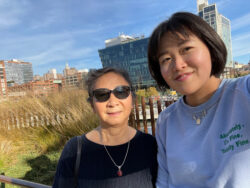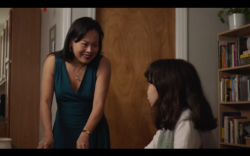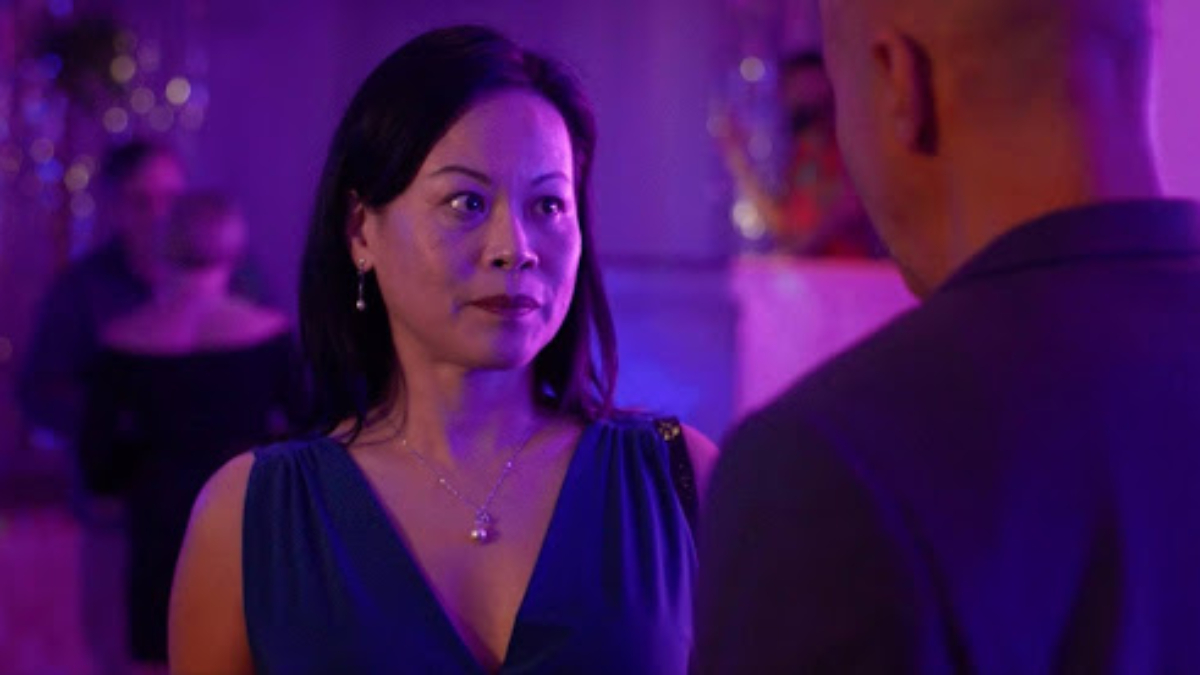A Personal Look Into Finding a Character’s Desires
In many ways, filmmaking is a personal outlet for filmmakers. Since graduating from NYU Tisch School of the Arts, Kathy Meng has aimed to tell stories through the medium that are personal and familiar. Her latest short film, “Elite Match,” follows single mother Lily (Rachel Lu), who navigates the online dating scene in Queens, New York while still being preoccupied by her daughter Joyce (Hana Kim). Meng sought to share some of the stories she heard for the first time after spending more time with her mother during the pandemic.
A lot of her mother’s stories stuck with Meng, some of which make it into the short film in at least some capacity. While her mother’s dating stories were all new to her, she does vaguely remember encountering glimpses of them while growing up, like seeing tabs on the shared desktop computer left open to her mom’s online dating profile. One story that stood out to her, Meng said, was when “she went to one of the dating website’s events and how she felt scammed because she was paying $500 [just] for a website.” Although Meng laughed at this story, she also realized that it was “so discouraging, [because] the reality was really sad … the event host even gave a warning to the women to not get their hopes up.” Meng experienced many mixed emotions after hearing her mother’s stories of online dating, and she attempts to encapsulate most of them into her film.

In the opening narration, expectations are clearly set as Lily states how she doesn’t remember the feeling of the person she was before immigrating, before her failed marriage, before motherhood – and that is a feeling she chases. “Elite Match” explores themes of desire as Lily attempts to find new love at a singles mixer hosted by the online dating site she uses. As it turns out, this desire goes beyond finding a love interest. Lily also desires love and acceptance from her daughter and their new home in Queens. This is something Meng observed in her mom because “she moved to the US in her 40s to live permanently from China, and any immigrant can relate to feeling lesser than Americans who have already been here, or feeling like they’re pegged down, that they have to prove something … so my mom definitely felt that way.” To love and be loved is something Lily desires from all aspects of her life beyond dating. She grows to understand herself and her relationships better through recognizing the love that is already present.
Though the themes may seem familiar, the perspective that Meng shares creates new dimensions to them. She questions, “how often do you see a middle-aged woman as a protagonist? Society dismisses older women and that in itself is worth telling the story.” The film aims to show a female perspective through a middle-aged mother trying something new, like dating again and realizing how nerve wrecking and competitive it can all feel. In doing so, she unlocks layers of representation that is relatable not only to middle aged women of Chinese descent, but to many other women of color, mothers, and immigrant families.

Meng’s short films can carry a lot of weight and are deep enough to be expanded into feature length films. When asked about that possibility, however, she decided to respect the short film format and leave her projects as is. She believes her works hold value for the immigrant experience regardless of the film’s runtime.
To create a balance and separation between her art and personal life, Meng only bases her concepts on a single real life event or memory. Rather than exactly recreating her memories, she tries “not to be so tied up to exactly what happened in real life because I want it to be entertaining, it is a fiction.” The same principle goes during production, where she doesn’t direct the actors to be exactly like her or her mother despite the similarities. Behind the scenes, many crew members have become friends and recurring collaborators with Meng, building a greater sense of trust, team chemistry, and empathy for the stories she aspires to tell. “When I collaborate with my friends I really respect them as a craftsman … And because my films are so personal it requires a lot of trust, and that comes with the friendships,” Meng says. She creates professional boundaries with her teammates, but has also developed a respectful balance with friends as collaborators in her projects. From relying on the same people to read drafts of her scripts, to working with the same producers and actors since college, and then to newly befriended cinematographers and gaffers, these partnerships extend through her filmography and still continues to do so in her next project.

Her upcoming short film, “Willow and Wu,” is currently waiting to hear from festivals all over the country, thus beginning her journey in the festival route anew. She has also hinted at writing a feature length film in due time, one where she will continue telling her truths.

